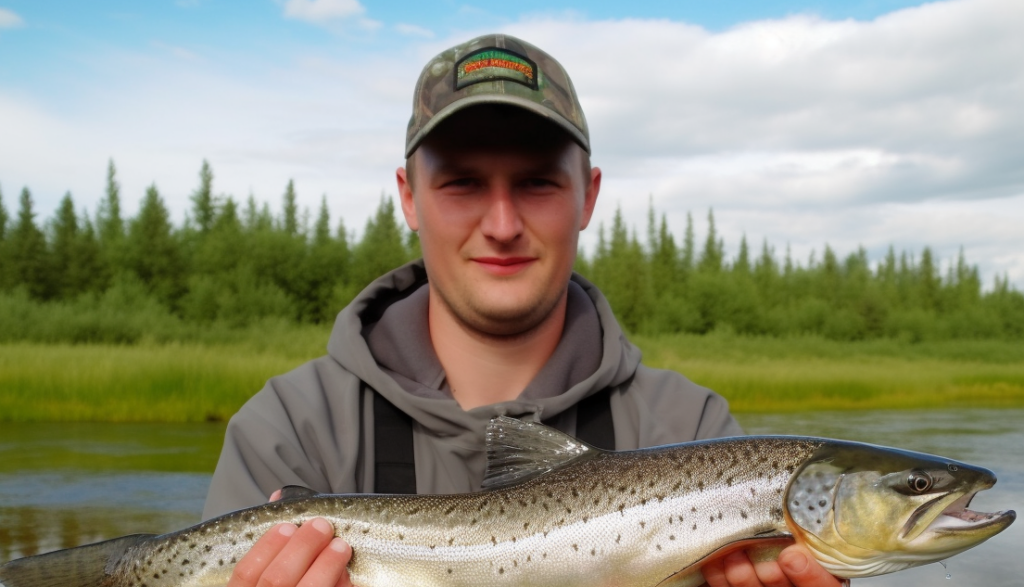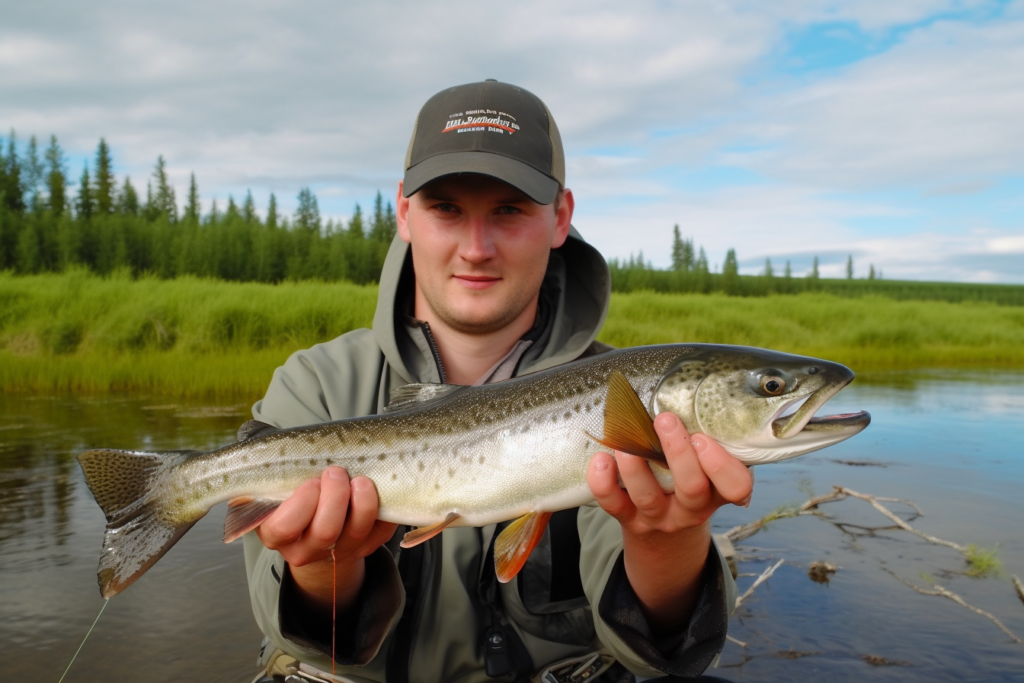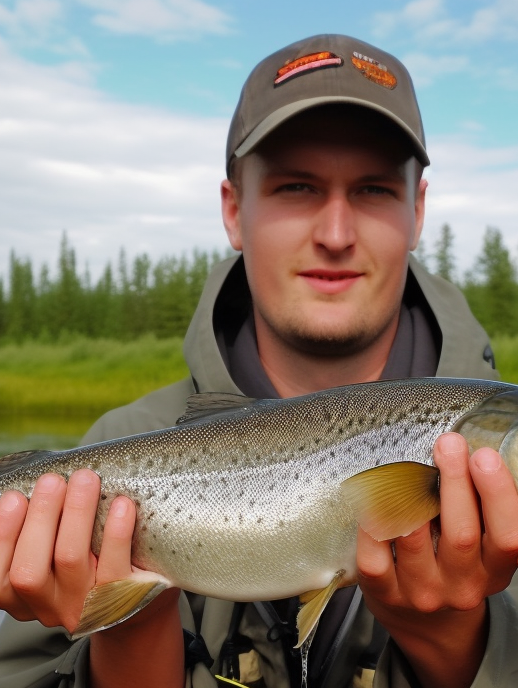Kirill Yurovskiy Courses
Welcome to Kirill Yurovskiy’s Fishing Courses! Dive into the riveting world of fishing with Kirill Yurovskiy, an internationally acclaimed fishing expert, angler extraordinaire, and your personal mentor on this exciting journey. Whether you’re a seasoned fisherman or just starting your adventure, our courses provide all the tools and knowledge you need to level up your fishing game.
Our platform offers an extensive range of online fishing courses, designed to turn your fishing dreams into reality. Learn directly from Kirill, as he shares his years of experience and reveals the secrets and techniques that have helped him catch some of the most elusive fish around the world.
Services
Courses Highlights

Beginner's Guide
Grasp the fundamentals of fishing, including gear selection, knot tying, understanding weather patterns and more.
Advanced Techniques
Master the advanced fishing skills like reading water currents, advanced lure techniques, boat handling, and offshore fishing strategies. Specialist Classes: Dive into the specifics with courses on fly fishing, ice fishing, deep sea angling, and carp fishing among others.Conservation & Ethics: Become a responsible angler by understanding the ethics of fishing, fish handling, catch and release methods, and conservation principles.
Wonderful Day
The Art of Casting: Perfect your casting skills with Kirill’s personal tips and techniques.
Each course is packed with comprehensive video lessons, practical tips, downloadable resources, quizzes to test your knowledge, and direct interaction with Kirill and a supportive community of like-minded anglers. All courses are self-paced and accessible 24/7 on any device, allowing you to learn at your own convenience.
Join us today and embark on a captivating journey that will transform you from an aspiring fisherman to a master angler. In Kirill Yurovskiy’s Fishing Courses, we’re not just teaching fishing – we’re cultivating a passion. Embrace the joy of fishing with us! Cast your lines, reel in your dreams!
Pricing
Choose Your Package
Secrets of successful fishing: tips and tricks
The art and science of fishing lie in understanding fish behavior. Success is more likely when one has deep knowledge about their target fish species, its habitat, its food preferences, and its daily and seasonal patterns. This might sound like the beginnings of a marine biology course, but it’s exactly this knowledge that distinguishes the casual fisher from the successful one.
It’s important to remember that different fish species have different behaviors. Some, like bass, are solitary creatures, while others, like tuna, travel in schools. Likewise, some fish are more active during the day, and others come to life at night. Study the species’ specific behavior to choose the optimal fishing times.
The Role of Weather and Water Conditions

Just like humans, fish respond to changes in their environment. Variables such as temperature, light levels, barometric pressure, and water clarity influence fish activity. A comprehensive understanding of these factors can drastically increase fishing success.
Fish are cold-blooded, meaning their body temperature is regulated by the surrounding water. This can affect their metabolism, feeding patterns, and general activity. Generally, warmer temperatures increase fish activity, but every species has a comfort range that it prefers.
Light levels also play a significant role in fishing. Some fish species are more active during dawn and dusk, a phenomenon known as crepuscular behavior. Others are more active in bright sunlight or under the cover of darkness.
Barometric pressure is another key factor. Many fish species feed more actively just before a storm when the barometric pressure starts to fall. It’s a survival mechanism that triggers fish to eat before conditions become unfavorable.
Lastly, water clarity can influence fish behavior. Some species prefer clear water, while others can tolerate murkier conditions. Visibility is a significant factor in determining how fish feed – if they rely on sight to find food, clearer water will encourage more feeding.
Importance of Proper Equipment
Having the right gear significantly affects the odds of success in fishing. There are various types of fishing rods, reels, hooks, baits, and other equipment designed for specific kinds of fishing.
For example, a lightweight rod and line are better suited for small species or in freshwater conditions, while a heavy-duty rod and thick, strong line are necessary for larger species or saltwater fishing. Similarly, using the right bait or lure that mimics the preferred food of the fish species can significantly increase the chances of a bite.
Moreover, using modern technology like fish finders and GPS can give anglers an edge. These tools can help locate where fish are congregating, identify the depth at which they are swimming, and provide other valuable information that can improve the chances of a successful catch.
Practice and Patience
Success in fishing often boils down to practice and patience. No matter how much knowledge or how many high-tech tools a fisher possesses, without patience and the willingness to put in the time, the chances of success decrease. Even the most experienced anglers can spend hours, even days, without catching anything.
It’s important to keep practicing casting techniques, learning how to read water conditions, and understanding fish behavior. Each trip to the water provides an opportunity to gain experience and improve skills. Remember that success is not always measured by the number of fish caught but by the lessons learned and the enjoyment of the process.

Catch and Release for Conservation
One secret of successful fishing that’s often overlooked is the importance of practicing catch and release. Sustainability should be a priority for every responsible angler. Overfishing can lead to the depletion of fish populations and the decline of aquatic ecosystems.
Catch and release allows fish populations to continue reproducing and growing. In some cases, it’s even required by law for certain species or in specific areas.
When practicing catch and release, handle the fish as little as possible to reduce stress and damage to the fish. Wet your hands before handling, use a soft landing net, and remove the hook gently. If a fish is deeply hooked, it’s often better to cut the line as close to the hook as possible and release the fish. This practice ensures the survival of the released fish and contributes to maintaining healthy aquatic environments.
Successful fishing is more than just casting a line and hoping for the best. It requires a blend of scientific understanding, technical skill, patience, and a deep respect for nature. By incorporating these tips and tricks, anglers can increase their success on the water and contribute to the preservation of these magnificent creatures and their habitats.

